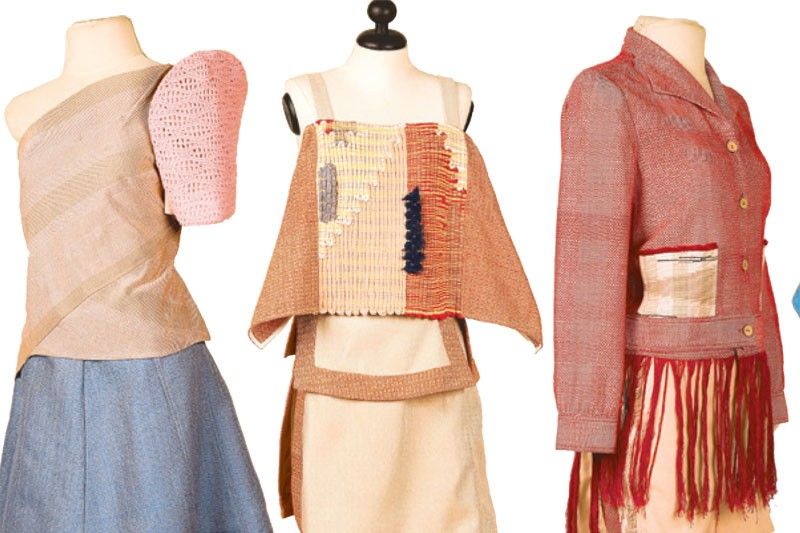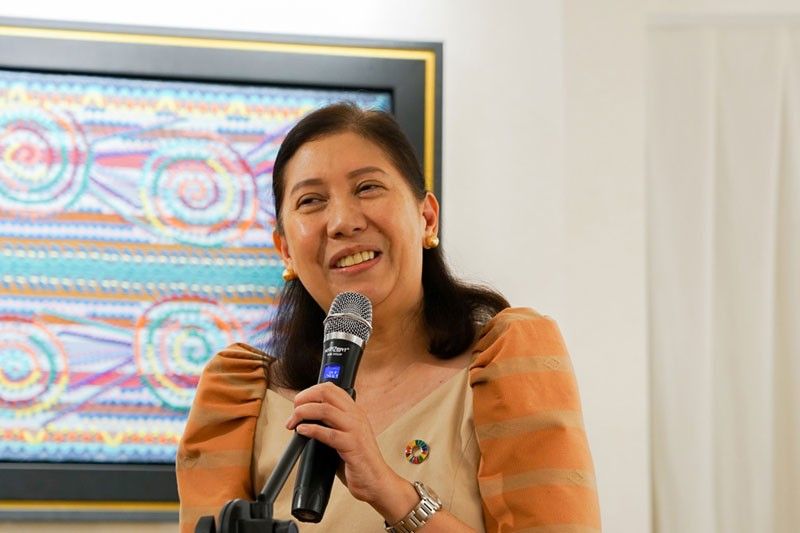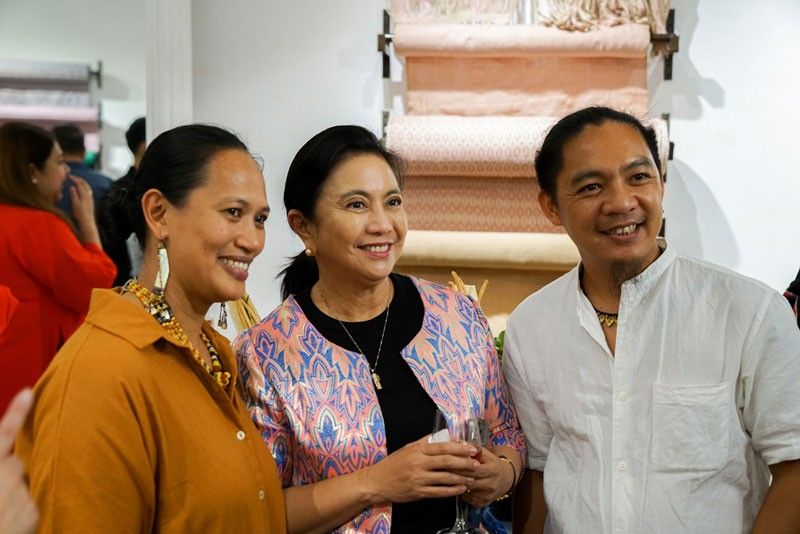Making fashion that lasts, remembers, and pays forward

One of my children asked me, where does all the fabric waste go?” begins Anna Lagon, co-CEO of homegrown brand Bayo with husband Leo, and executive director of the Bayo Foundation.
“She was about 10 or 12 years old then, and that was actually the starting point, the reason why we’re curious about sustainability. Because I wanted to give the best answer to my children. I don’t want her to ask me again and not be able to answer in a good way,” adds Lagon. “From then on, I became extra conscious, and that led me to discover that we can actually make our business a platform — and it’s what we’re doing now.”
It’s been more than 30 years since Bayo was first established, and it’s grown and evolved — together with the millennials and Gen Z shoppers that’ve known and loved the brand — ever since.

Behind the seams
As with the emergence of more socially conscious shoppers, particularly in the post-pandemic world, Bayo has quietly been making efforts to continue its production of proudly Philippine-made clothing of premium quality — made in mindful ways.
In 2017, the Bayo Foundation was launched with the goal to “use fashion as a vehicle for social good.” Its principal campaign #JourneytoZero moved to turn Bayo’s clothing production chain from linear to circular, which means that zero waste is generated in the process.
“I realized that fashion can be such a strong platform,” Lagon muses. “We can actually make sense with what we do by putting meaning into everything, like in how we choose materials, how we involve marginalized sectors, in the way we see our products, and how sustainable garments can have a lot of stories to tell.”
In a few short years, the Bayo Foundation has also involved itself in helping local communities in Aklan, Bulacan, and Cebu for hand-weaving, and Benguet and Misamis Oriental for silkworm farming.
Last September, the Bayo Foundation launched its HARVEST Creative CommUNITY Hub in Baguio, a space that connects local makers to those interested to learn about traditional Filipino folk arts, with the intention of preserving, nurturing and uplifting the craft.
Esteemed designers Zarah Juan, Vin Orias, Harvic Dominguez and Valdes Designs were invited to participate in its capacity-building programs, collaborating with the weavers of the hub to fashion exclusive designs to be made available soon at the Bayo Atelier.
“It was a nice collaboration, we’re all learning from everybody,” shares Dominguez, who calls Mountain Province in Baguio his hometown. Having almost quit the industry due to challenges during the pandemic, being tapped to be part of the program sparked new hope in him. “The process was very exciting for me, and it was smooth-sailing. And the weavers, they were very open to the designs, sila na yung excited,” he adds.
“Trabaho namin as designers is to connect yung craft ng Baguio to the market through our products,” explains Orias. The designer, who focuses on the weavers’ crochet-making skills to make bags for Bayo Atelier, is appreciative of how the creative hub gives value to and is transparent in every step of the creative and production process.
“Even the very little details are recorded and accounted for. Transparent lahat. From yung content ng tela, and even the ethical side of production and pricing… hanggang lumabas sa market yung products, lahat ng ginagawa namin, clear sa amin, na ito dapat tayo, ito ginagawa natin, this is what we stand for,” he reiterates.
And ultimately, the goal for Orias and his co-designers was to make sure that the weavers understood how each one of them plays an important role in it all. “Hindi lang basta ginawa, tahi, benta — it’s really more than that.”
“These are unique, beautiful pieces made with so much passion and heart. You can feel the soul and energy of each piece,” says Juan of the woven fabrics. “Gone are the days when we would get so much influence or follow the trends of other foreign countries. Now, we can still do that, but with the mindful decision that, ‘Hey, I’d like to show the world who I am!’”

Weaving stories
Taking yet another incremental step towards sustainable fashion and fashion that pays it forward, the Bayo Foundation has recently transformed one of Bayo’s premium stores in Makati into the Bayo Atelier — a space in Greenbelt 5 to showcase heritage hand-woven textiles and pieces from both emerging and celebrated Filipino designers.
“It’s the beginning of another story,” Lagon says. “It speaks of our heritage, and of what we want Bayo to become, and what we hope we can evolve into. But it has to be slower, at this point; we take time to create for the people who are really appreciative of the process.”
A result of the months of collaboration with the weavers of the hub, she considers the space a showcase for what has transpired — and the endless possibilities to come.
“The hub has become a place where we can build relationships,” shares Lagon. “It didn’t happen overnight. Once the community members feel the sincerity of the project that we offer, they are now the ones that tell us, or remind us, where do we go next? Without expecting too much from them, they are the ones who show interest in how to continue these collaborations.”
Step into the atelier and you are let into the slow and careful creative process of making each garment. You are first led to try on the ready-made silhouettes, such as terno tops, shift dresses, tie-on vests, and more.
Then, you can choose your preferred hand-woven fabric from its repertoire of weaves. There’s a story behind the unique patterns offered at the atelier. Lagon decided on producing their own, in lieu of the ethnic patterns that Cordilleran artisans are known to make, for example, as she believes these belong to their culture, their tribe and where they come from. “We wanted to tell a story that speaks of our collaboration,” she says, noting how, with the weavers in the hub, they developed new and unique patterns in more contemporary iterations and in rather muted colors that are exclusively developed for Bayo.
Finally, the last step is getting yourself measured for size. And you can expect to have your garment ready (to try on for adjustments, if necessary, or take home already!) in five to seven days. In case you find a style that suits your taste and fits you perfectly, off-the-rack options are available, too.
In true circular fashion, Lagon always brings it back to the weavers. “How else can I value their work?” she says. Being able to sustain their livelihood and improving their income is still what’s most important to them, and in response, Lagon hopes for more people — the next generation and the global market included — to see the value in their skills, and regard them as the masters in their craft.
“They are the ones who are taking care of our story, our heritage, and our traditions, especially of hand-weaving.” Behind every garment is a story of how it came to be.
* * *
Bayo Atelier is in Greenbelt 5, Ayala Center, Makati.



















